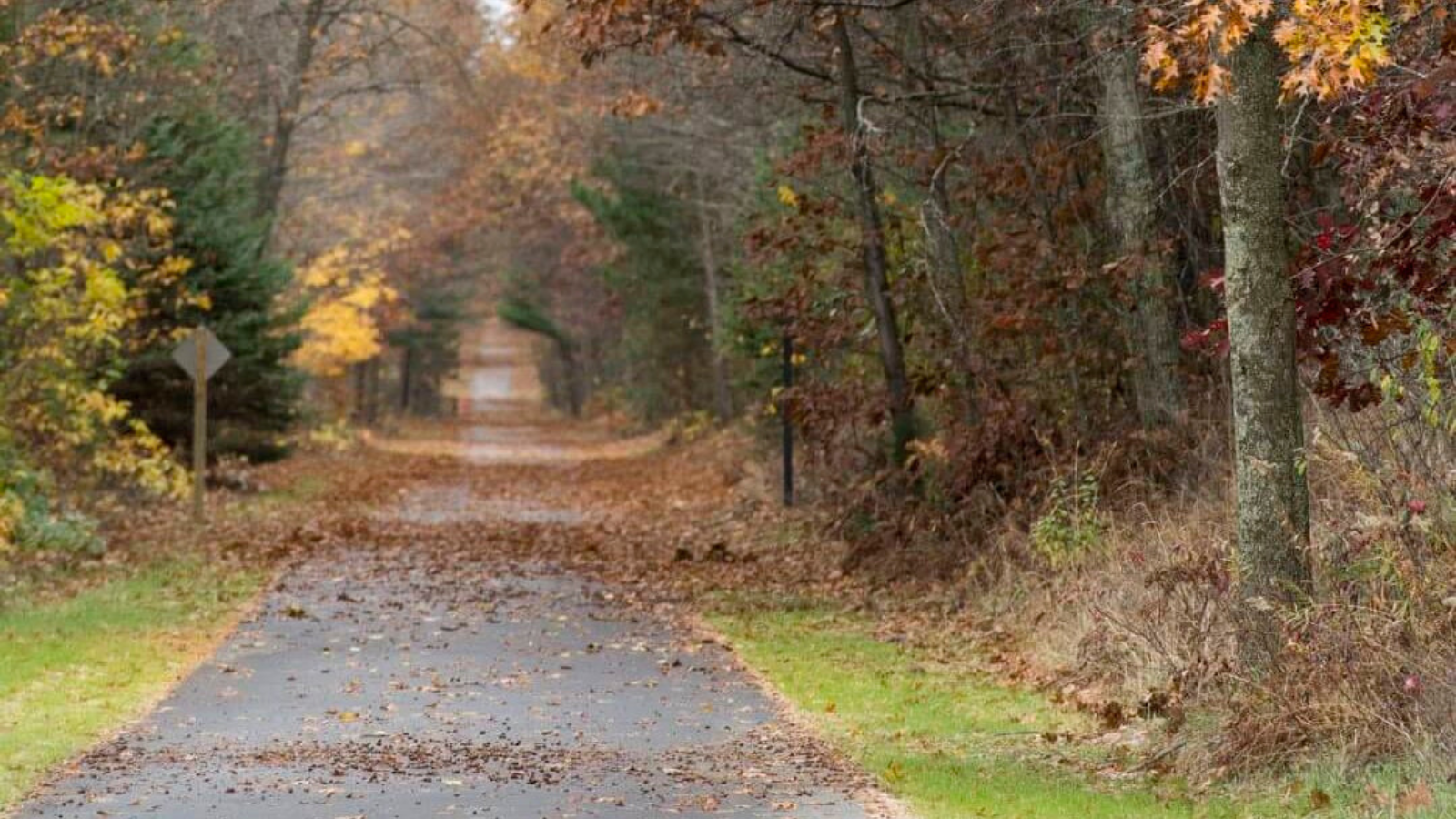
Delta Institute in partnership with West Michigan Shoreline Regional Development Commission (WMSRDC) planted 756 trees in Oceana County, Michigan along the Hart Montague Trail and at key sites within the surrounding communities to improve water quality, expand native canopy coverage, and provide forestry capacity building.
Why Our Work is Needed
Stormwater runoff from parking lots, roadways, buildings, and other impervious surfaces carries oils, grease, pesticides, sediment, and excess nutrients such as phosphorous and nitrogen into groundwater and nearby natural bodies of water–including to Lake Michigan through watershed tributaries. Due to the increased frequency and severity of storms as a result of global climate change, volumes of stormwater runoff continue to increase.
Brief Overview of What We’re Doing
Delta Institute with WMSRDC planted 756 trees in Oceana County, Michigan along the Hart Montague Trail and at key sites within the surrounding communities. The project has reduced and treated stormwater volume by 30,149 gallons annually and increased the long-term capacity for forest management in low-resource communities and agencies, where an average of approximately 26% of the population is below the poverty line. By targeting funds to these communities, we built capacity for local government units that do not employ an arborist or forester, thus enabling municipal and local agency staff to plan tree plantings, oversee planting contractors, and manage and maintain the trees within their cities, towns, and townships.
Having handled grant procurement, contractor procurement, and project management, Delta oversaw the completion of a project planting plan, Year 1 and 2 tree sourcing, procurement and oversight of planting and maintenance contractors, workshop planning and oversight, signage development, forest management plan development, stakeholder coordination, and grant administration. A key final deliverable was the creation of a 5-10 year forest stewardship plan (linked below).
The goals of the project included:
- Planting 700 trees (756 trees were planted) along the Hart Montague Trail and in the five nearby towns of Hart, Mears, Shelby, New Era and Rothbury; and,
- Building regional capacity for long term urban forestry stewardship in Oceana County via trainings, workshops, and the creation of the below forest stewardship plan.
Partners
Key project collaborators included:
-
- West Michigan Shoreline Regional Development Commission (WMSRDC): Workshop planning, stakeholder engagement, facilitation.
- Oceana Conservation District (OCD): Forestry technical assistance, tree maintenance support
- State of Michigan – Department of Natural Resources (MDNR): Participating local agency
- Cardno: Year 1 planting contractor
- Muskegon Conservation District (MCD): Year 2 replacement planting contractor
- City of Hart: Participating local municipality
- Village of Shelby: Participating local municipality
- Claybanks Township: Participating local municipality, tree maintenance support
- Golden Township: Participating local municipality, tree maintenance support
- Oceana County: Participating local agency
- Village of New Era: Participating local agency
Funding
This project was generously supported by the U.S. Forest Service, and operated in partnership with the West Michigan Shoreline Regional Development Commission, Oceana County & Trails, Eugene Kuhne, and William Field-Hart Montague Trail Funds of the Community Foundation for Oceana County.

